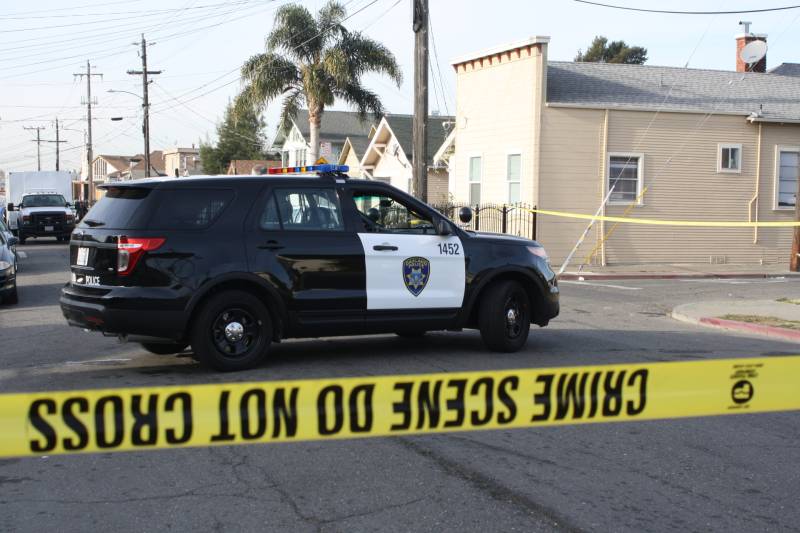Armstrong, the police chief, said much of the violence could be attributed to “homegrown groups and gangs from Oakland.”
“But we have, as of late, experienced a lot of violence related to San Francisco gangs and groups — from as far as Antioch, Vallejo — that have come over to Oakland and committed several violent acts,” he said. Armstrong also noted the influence of human trafficking, adding that his department was working closely with the district attorney and the FBI on dealing with the issue.
“Human trafficking not only impacts Oakland but the entire Western region,” said Armstrong. “We know that there are those that come to Oakland specifically to traffic.”
Human trafficking — the buying and selling of people for sex or labor — has been one of the drivers of gang violence that Oakland has been trying to combat with various initiatives.
Too many guns
But the biggest issue that all three city leaders touched on was the proliferation of guns.
“The number of households that bought guns increased by 18% during the pandemic. … More people, more guns,” said Cespedes. “This is a battle that Oakland is waging, and we need help.”
Armstrong also noted the increase in “ghost guns,” a term for firearms that can be easily constructed from kits, and that are untraceable.
“I mean, just yesterday, we recovered four of those guns from one individual,” he said, adding that the OPD has “already recovered over 1,150 firearms so far this year, which is a 34% increase compared to last year,” saying that a significant number of these firearms have been ghost guns.
“While this spike in Oakland has been historic for us, believe it or not, it matches the national average,” Schaaf said, faulting federal leaders for failing to stop the proliferation of firearms. “We have never seen so many illegal guns on our streets and the failure of the federal government to ban assault weapons, as well as the equipment that turns regular guns into assault weapons, (and) to invest adequately in mental health, conflict resolution, the mental state of people, especially our young people. … These are failures at the federal level.”
An emergency medicine resident physician named Henry at Highland Hospital in Oakland wrote in, “I’ve seen a shocking increase in nonfatal violence, gunshot wounds, stabbings, assaults. Many of these injuries are to people who are simply caught in the crossfire.”
Many callers seemed unconvinced that police and local leaders were taking the appropriate steps to rein in a situation they described as spiraling out of control.
‘How people are feeling right now’
Another caller, Marisol, said her East Oakland neighborhood, despite having among the highest number of shootings in the city, is generally neglected by police, adding that she doesn’t see the “impact of any of the dollars in our communities.”
Schaaf acknowledged that “the grief and trauma that people are experiencing right now is at an all-time high.”
“We can talk about what we’ve done, we can also even talk about data that shows impact … but that does not in any way take away from the importance of that sentiment of how people are feeling right now,” she said.
Schaaf pledged to improve communication with the public about efforts the city is making to address violent crime, while also aiming to make better use of available crime-fighting technology, like license plate readers, and to strengthen coordination efforts among various city agencies and community groups.
“I think we as a city need to do a much better job of communicating what we are doing,” she said. “We recently did a survey of Oakland residents and I was surprised to see that that was one of the top responses that would make people feel like the city of Oakland was going in a good direction: simply knowing more about what city government is doing.”
She added, “I do always think that we’ve got to have the long view. As much as this moment feels so unsettling, to continue to invest in our children, to teach them the social and emotional skills that they need to navigate these difficult times with a sense of safety, with a sense of hope for their future.”

